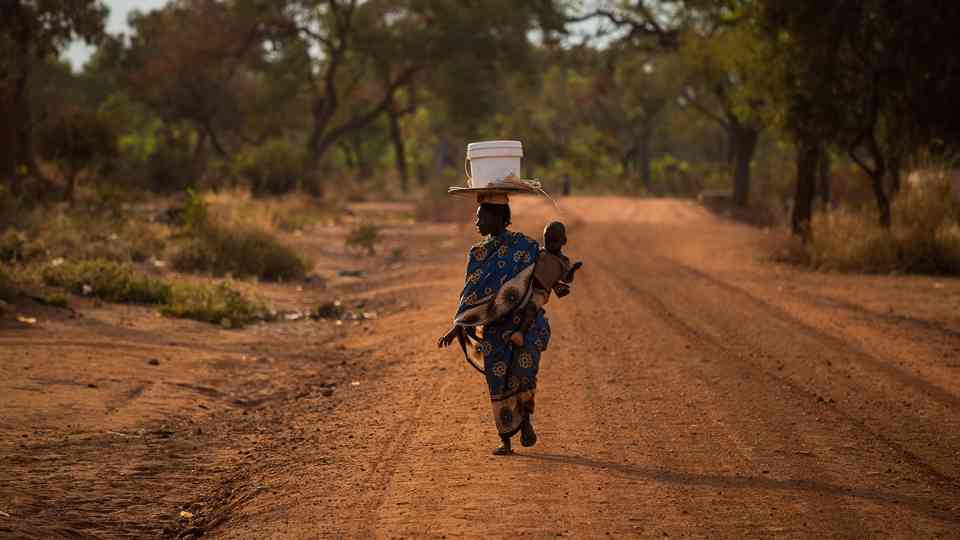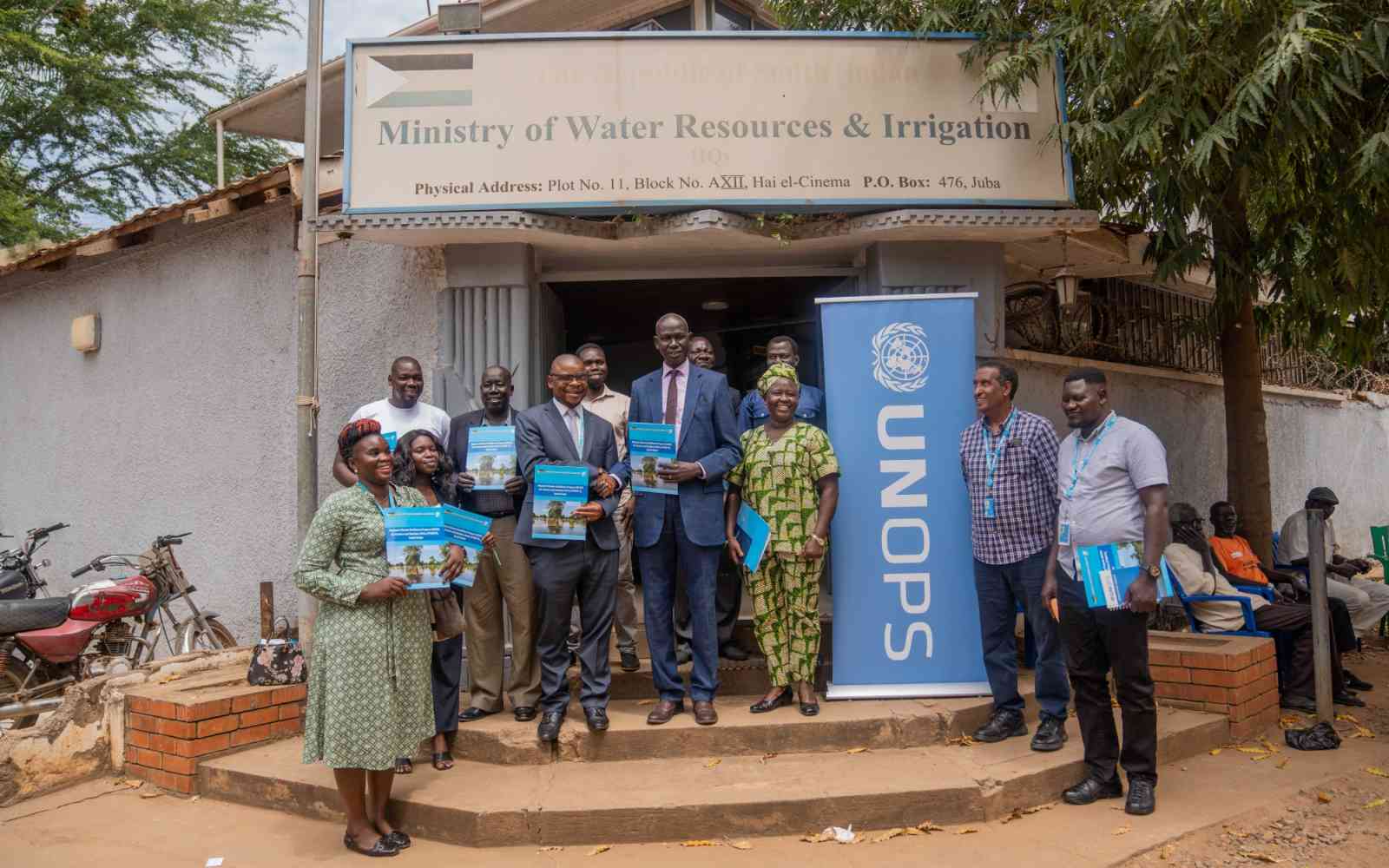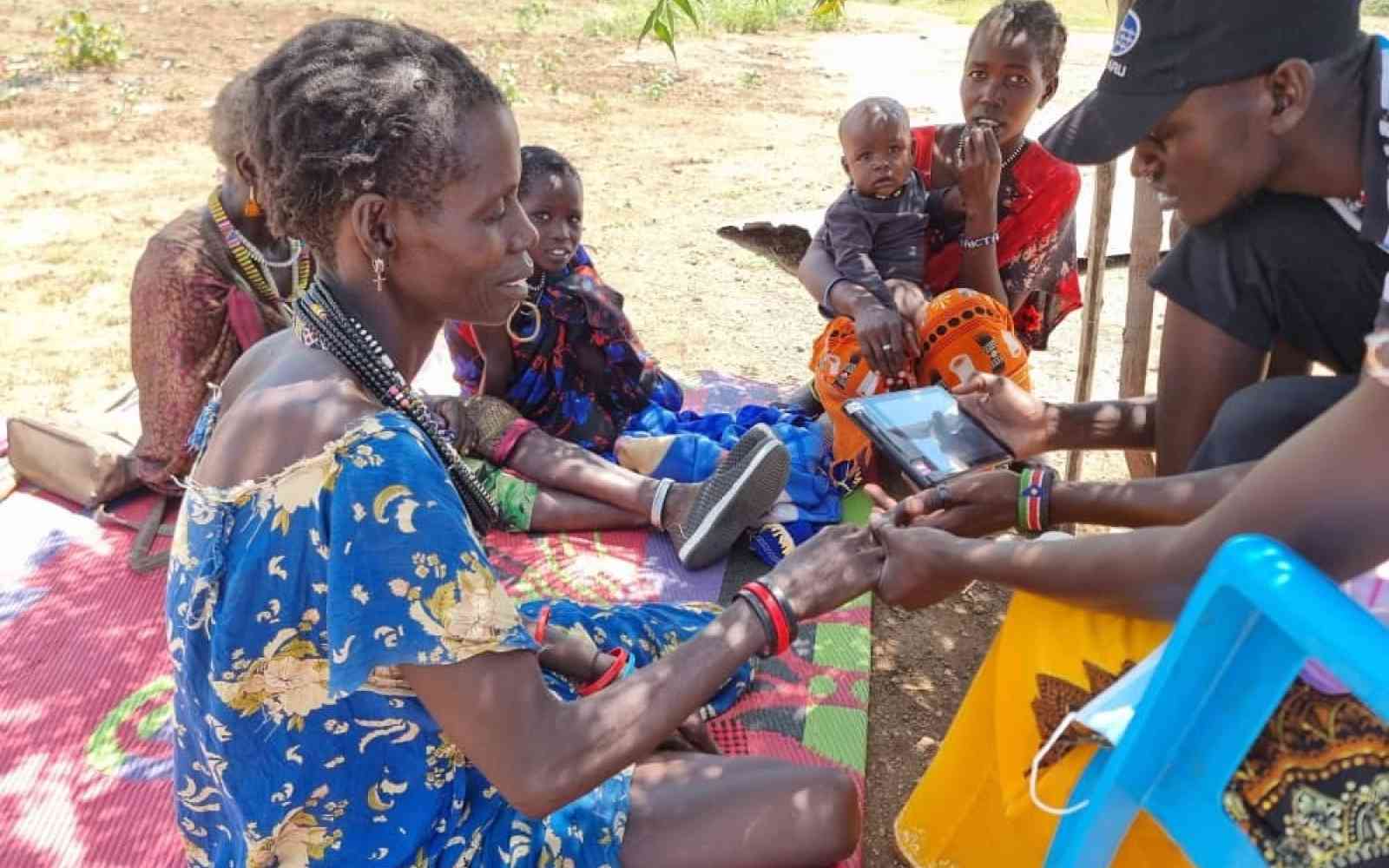The United Nations Office for Project Services (UNOPS)

Providing a social safety net in South Sudan
The start of the COVID-19 pandemic made 2020 an especially difficult year for many people in South Sudan – one that they're still trying to recover from even today.
Much like the rest of the world, many low-income and vulnerable families in South Sudan have struggled to cope with the continuing impact of the COVID-19 pandemic. Flooding, locusts invasions and high inflation also increased food insecurity in many parts of the country.
To alleviate this, UNOPS is implementing the South Sudan Safety Net Project on behalf of the government of South Sudan, using $40 million in funding from the World Bank.
It uses a combination of labour-intensive public works and direct grants to provide economic support and temporary income opportunities to more than 65,000 low-income and vulnerable households – nearly 430,000 people – across the country.
The project also provides training in areas such as financial literacy, early childhood development and nutrition, and hygiene and sanitation to build local skills and resilience among communities.
Providing income opportunities
Connecting communities to services
The village of Lochwa in southeastern South Sudan experiences almost yearly famine due to long periods of drought. Surrounded by several mountains, it's completely cut off from both humanitarian and development services.
“We do not have water points, hospitals, schools or nutrition centres here," says Nawi Lucia Lobeyo, a village leader. "We are completely cut off from the rest of the world. We only rely on ourselves for survival.”
A labour-intensive public works project to clear an old road in Lochwa is helping to improve access to much-needed services and address some of the challenges faced by the hard-to-reach community.




“Since we started working on these roads, non-governmental organizations have started coming to assess our needs for the first time. This was never possible before this project began,” says Joseph Lotabo Nakube, a resident of Lochwa.
Similar projects are being implemented in eight counties across the country as part of the South Sudan Safety Net Project.
Like Lochwa, New Site was isolated from the rest of the county due to poor road infrastructure.
“With no road connecting us to the rest of the county, movement has been so limited. It takes us between seven to eight hours to walk to Narus Boma to access services," says Aliman Ali, who supervises building works for a new road linking New Site to Narus Boma.
This road brings us hope.
“As soon as this road opened, we started seeing many changes in our community. Now, some aid agencies have started visiting us," says Aliman. "Public transport is also now available, allowing people to travel safely to Narus, and also bring in goods and services for us."
Empowering local communities
In Juba, South Sudan's capital, the COVID-19 pandemic and the resulting impact on the economy have disrupted lives and affected the livelihoods of thousands of people.
“Life already wasn't easy for my family. It was made even worse by COVID-19," says Hellen Regina Elia, a resident of Hai Game. "We had no water, no food and were really worried about how to raise our children.”
"2020 was indeed a very tough year for me. Raising money to take care of my two children and wife was not easy,” says Khor Woliang resident Marko Loboi Karlo.
To support Hellen, Marko and others in similar situations with getting back on their feet and to help build a solid foundation for resilience to crises in the future, households received $361 over 7 months as part of the project.
Hellen, who has high blood pressure and ulcers, used the money she received to treat her health issues and support her family.
As soon as I got cash from the project, I bought an assortment of the medicine I needed. I also stocked my house with food to feed my family.
Marko used the money to feed his family and to repair his broken sewing machine.
"My sewing machine is working well, and I have been busy – especially during the festive season – sewing my customers' clothes," says Marko with a smile.
About this project
The South Sudan Safety Net Project provides reliable access to income opportunities and temporary employment for nearly 430,000 people in some of the most vulnerable communities in 10 counties: Bor, Gogrial West, Juba, Kapoeta East, Melut, Pibor, Raja, Tonj South, Torit and Yei. The project is funded by the World Bank’s International Development Association and implemented by UNOPS on behalf of the government of South Sudan.
The $40 million project includes labour-intensive public works, direct income support and training for beneficiaries covering various themes, including financial literacy, early childhood development and nutrition, and hygiene and sanitation best practices, among other activities.














